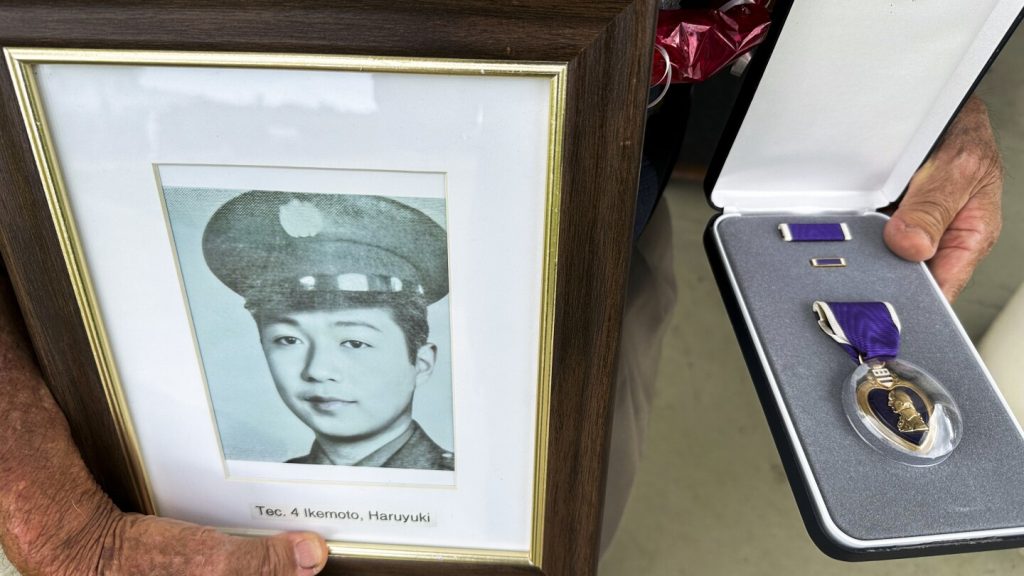On Friday, families of five Hawaii men who served in a unit of Japanese-language linguists during World War II received posthumous Purple Heart medals on behalf of their loved ones. These soldiers died in a plane crash in the final days of the conflict, with one family member expressing overwhelming emotions at the belated honor. The older Ikemoto, among 31 men killed in the crash, was the first in his family to attend college and was remembered as the smartest and most talented in his family. Army records indicated that only two of the 31 soldiers received Purple Heart medals, leading researchers in Hawaii and Minnesota to discover the omission and for the Army to agree to issue medals to the families of the 29 men who were never recognized.
The ill-fated flight that led to the death of the 31 soldiers consisted of 12 paratroopers, five soldiers in a Counter-intelligence Detachment, 10 Japanese American linguists in the Military Intelligence Service, and four crew members. They had flown from the Philippines to spearhead the occupation of Japan after Tokyo’s surrender. The failure to recognize all 31 soldiers with medals was attributed to administrative oversight in the waning hours of the war, as the U.S. was preparing to invade Japan’s main islands but changed plans after indications of Japan’s surrender. The Hawaii five were all part of the Military Intelligence Service, which played crucial roles during the occupation of Japan as liaisons between American and Japanese officials and overseeing regional governments.
Despite the delay in recognizing these soldiers, the ceremony was a momentous occasion with retired Army Gen. Paul Nakasone, who recently stepped down as head of U.S. Cyber Command and the National Security Agency, presenting the medals to the families. Nakasone, whose Hawaii-born father also served in the MIS after the war, had a personal connection to the event and expressed pride in all the MIS soldiers, both during combat and during the occupation. The MIS, made up mostly of Japanese Americans, served in a variety of roles during World War II, including interrogating prisoners, translating intercepted messages, and gathering intelligence behind enemy lines. Their work remained classified until the 1970s, making their contributions relatively unknown until recent years.
The families of the Hawaii five felt a mix of emotions during the ceremony, with Wilfred Motokane Jr. expressing happiness at the recognition finally happening but also lamenting the long delay. The Hawaii soldiers were inducted into the MIS in January 1944 after a team was sent to Hawaii to find more linguists. In total, around 6,000 soldiers served with the MIS, but much of their work remained hidden from the public eye for decades. The soldiers’ understanding of Japanese culture played a crucial role in the postwar occupation of Japan, as they were able to bridge the gap between the vanquished and the victor. The belated recognition of these soldiers through the awarding of Purple Heart medals serves as a tribute to their contributions during a pivotal moment in history and brings closure to their families after nearly eight decades.


